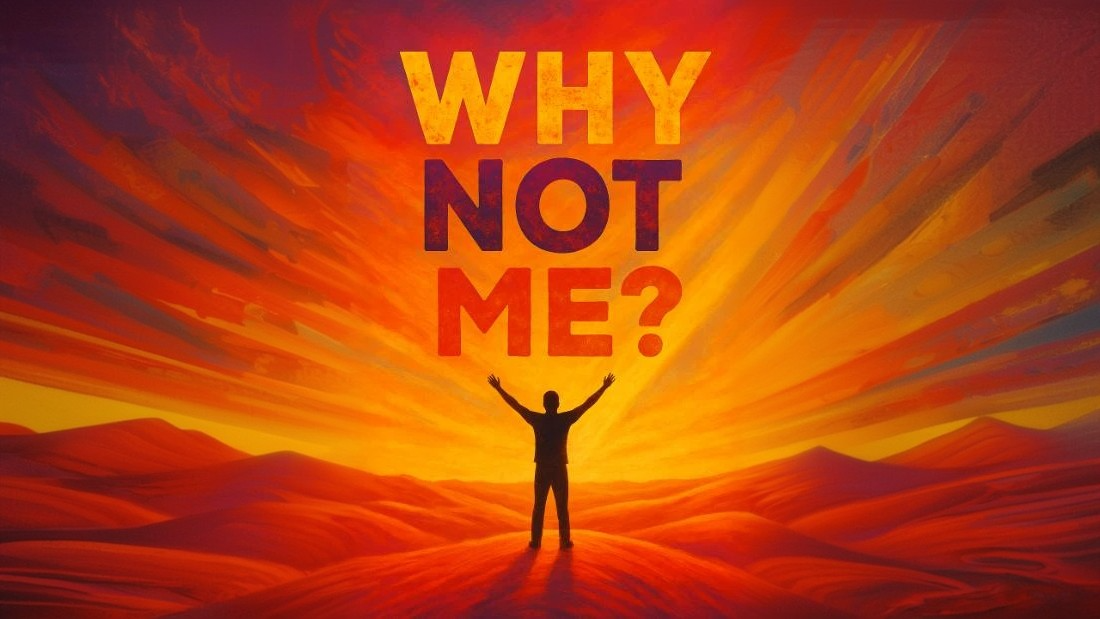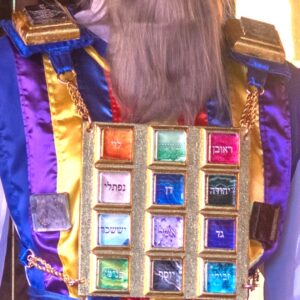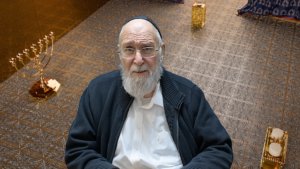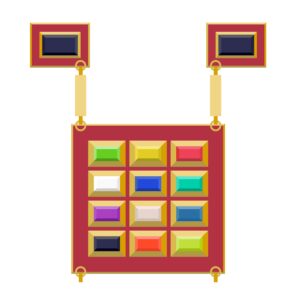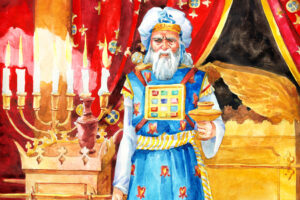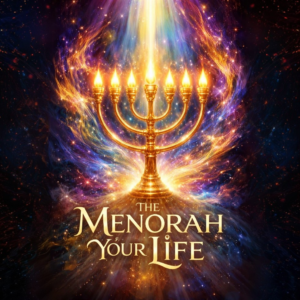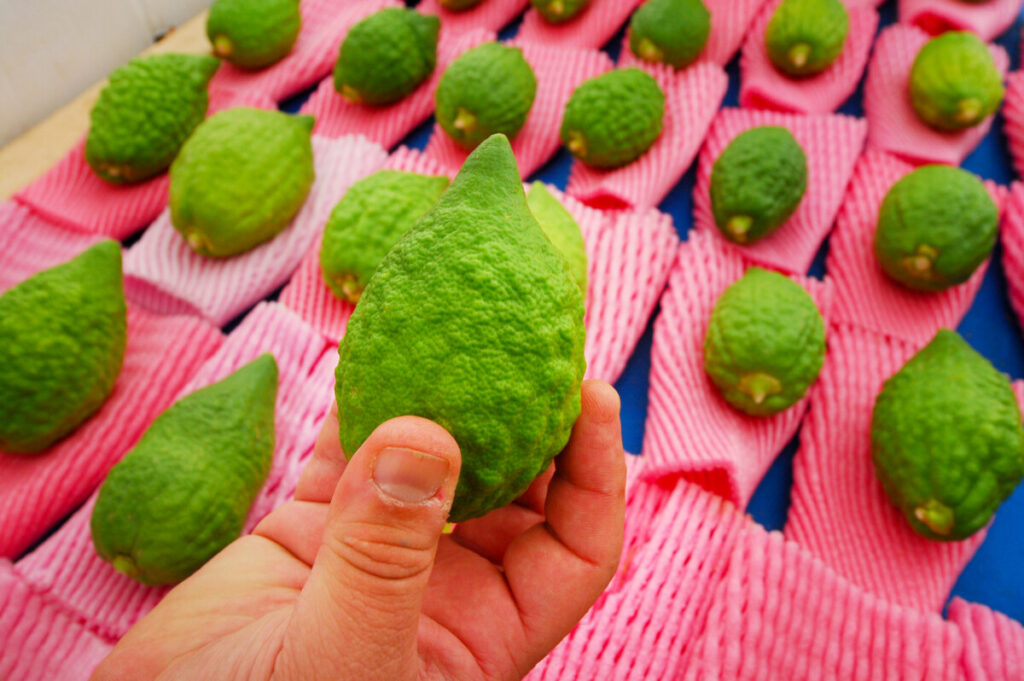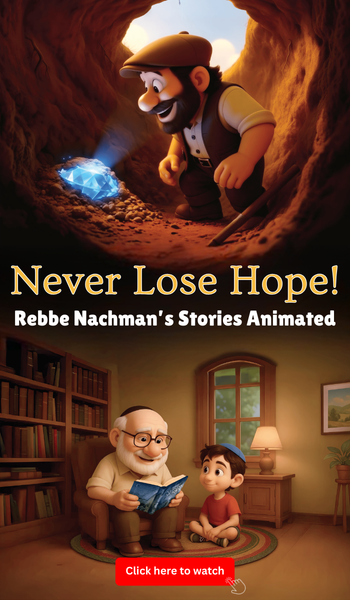Lamah Nigara
ADAPTED FROM HIS AUDIO SHIUR ON SICHOS HARAN 185
Hidden Dots in the Torah
When we open the Sefer Torah, we see scripted letters topped with crowns. Yet, beyond these visible features, certain letters have mysterious dots placed above them. These dots are neither vowels nor musical notes—they don’t change pronunciation or melody—but they silently hint at deeper, hidden meanings. The Gemara teaches that there are places in the Torah marked by these unique dots, guiding us toward teachings beyond the written text.
Reb Noson explains how these dots represent a powerful unity of the Written Torah (Torah Sheb’Ksav) and the Oral Torah (Torah Sheba’al Peh). Just as we sometimes read words differently than they are written (Kri and Ksiv), these dots subtly weave the oral tradition into the text itself, demonstrating how both aspects of Torah are inseparable.
Pesach Sheni
An example of these dots appears in the pasuk dealing with Pesach Sheni. The Torah explains that if a Jew was Tamei (ritually impure) or “bederech rechokah“—at a distance—during the offering of the Korban Pesach, he could have a second opportunity one month later, on the 14th of Iyar, known as Pesach Sheni. In this pasuk, the letter “Hei” in the word “Rechokah” has a dot above it.
What does this dot teach us? It instructs us not to interpret “distance” literally. It doesn’t refer to someone who is physically far away. Even if a person reached as far as the courtyard (Azara) of the Beis HaMikdash but was unable to enter in time, he is still considered “distant.” Therefore, the Torah’s concept of distance here isn’t measured in miles but simply whether a person is present or not inside the Azara. Someone outside—even by a few feet—is equally “distant” as someone hundreds of miles away. This dot conveys that anyone unable to be physically present due to circumstances beyond his control qualifies for a second chance, emphasizing the Torah’s compassion in allowing a Pesach Sheni.
Why should we be left out?
וַיֹּאמְרוּ הָאֲנָשִׁים הָהֵם אֵלָיו אֲנַחְנוּ טְמֵאִים לְנֶפֶשׁ אָדָם, לָמָּה נִגָּרַע לְבִלְתִּי הַקְרִיב אֶת־קָרְבַּן ה’ בְּמֹעֲדוֹ בְּתוֹךְ בְּנֵי יִשְׂרָאֵל
(במדבר ט, ז)
“Lamah nigara“—“Why should we be left out?”—was cried by those who were unable to bring the Korban Pesach due to impurity, yet yearned to connect with Hashem like everyone else. Their sincere desire opened the gates for Pesach Sheni, teaching us that no one is ever truly excluded when they long to come close.
The Greatest Avodah
Hisbodedus is the holiest of all possible avodos, customs, or habits that a person can acquire. It is the greatest treasure of all. Rebbe Nachman stated very emphatically that the biggest tzaddikim achieved their exalted level because of hisbodedus (Likutey Moharan II 25). This is the key.
Some find it difficult to speak to HaShem, quickly running out of words. They can easily converse with friends about trivial topics, yet struggle with meaningful, spiritual conversation. They also find it difficult to shed tears before HaShem, despite the teaching that the gates of tears are never locked (Bava Metzia 59a).
“Lamah Nigara” – Key to Hisbodidus
Reb Noson reveals to those people the key to hisbodedus. He advises that you say, “HaShem, lamah nigara—why should I be the exception? Others find it so easy to speak to You. Why don’t I have words to speak to You? HaShem, help me to do hisbodedus.” Even a cold heart can become emotionally stirred by these honest words. When you sincerely ask for HaShem’s help in speaking to Him, suddenly thoughts and words flow freely.
This is the greatest source of help: Do hisbodedus. And if you need help with hisbodedus, go directly to HaShem. Say, “HaShem, You help me speak what I have to say.” This key is beautifully simple and deeply connected to regular prayer, where we begin Shemoneh Esrei with the words, “ה׳ שְׂפָתַי תִּפְתָּח וּפִי יַגִּיד תְּהִלָּתֶךָ” HaShem, You open my lips, let my mouth declare Your praise.”
Hisbodedus Is for Every Jew
Rebbe Nachman emphasized that hisbodedus is for every Jew without exception—whether a great tzaddik or a person struggling spiritually. Hisbodedus is essential nourishment for the soul.
- 0 comment

